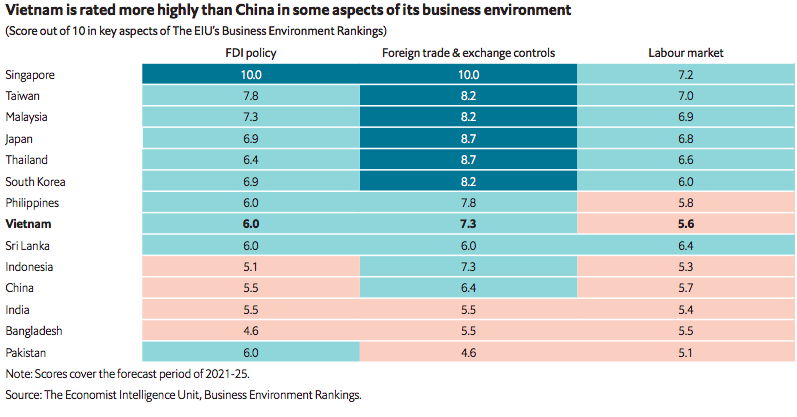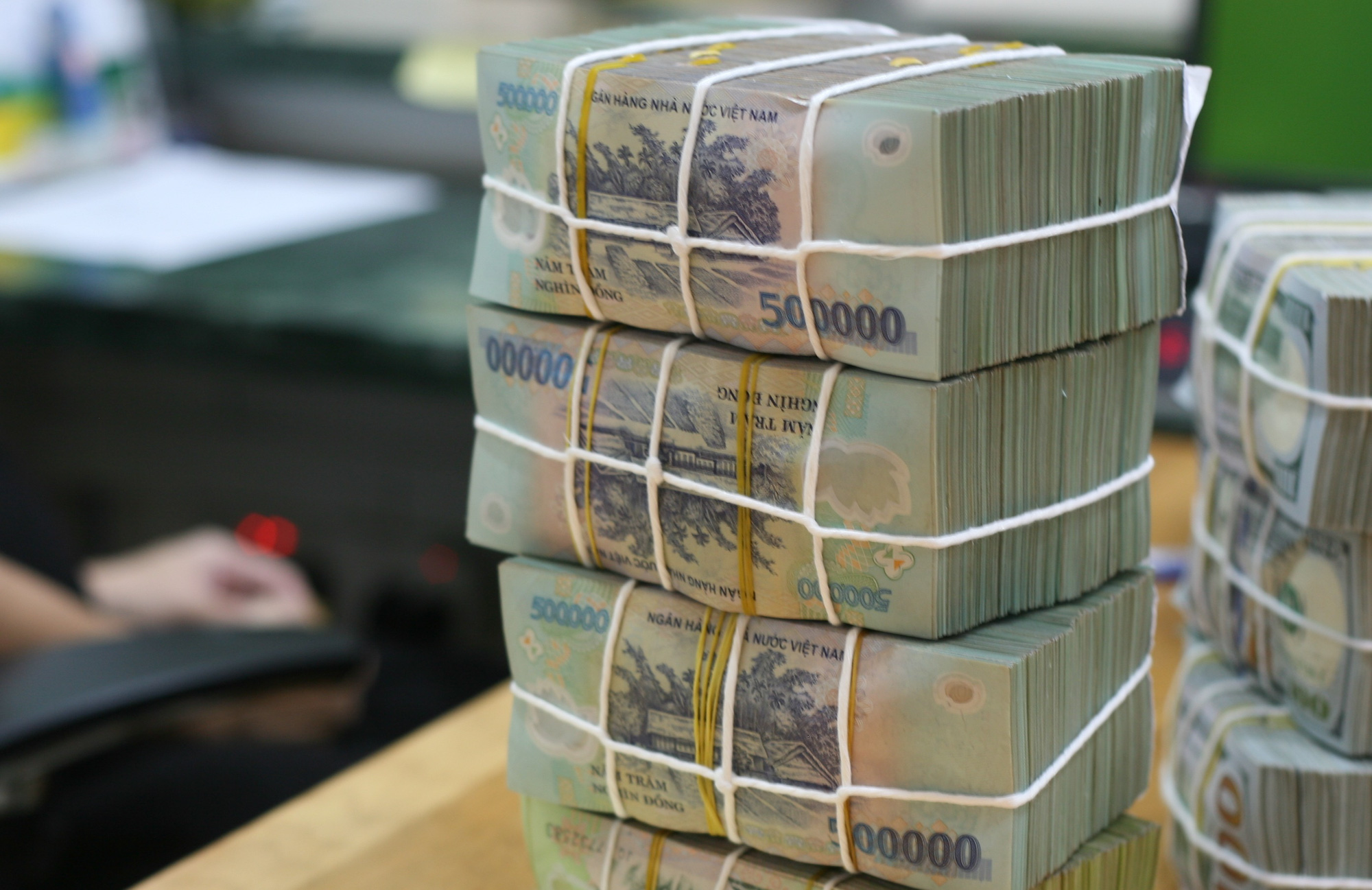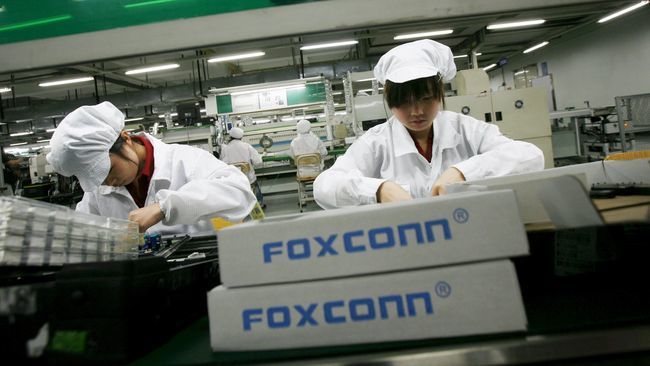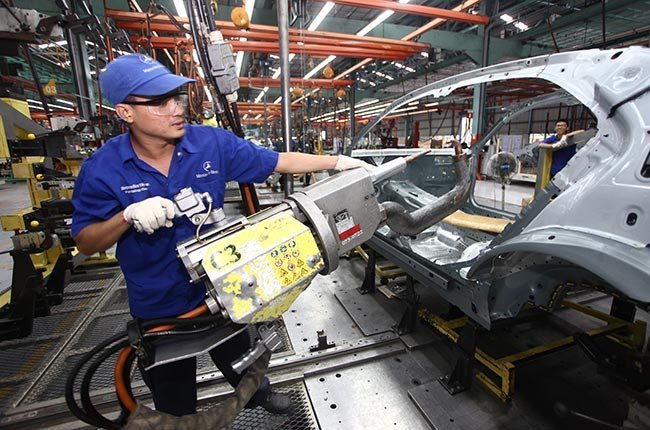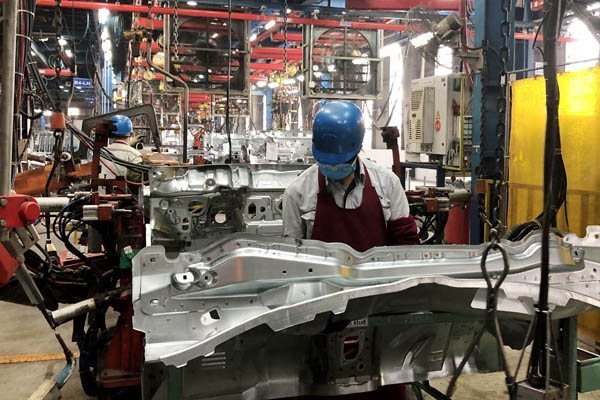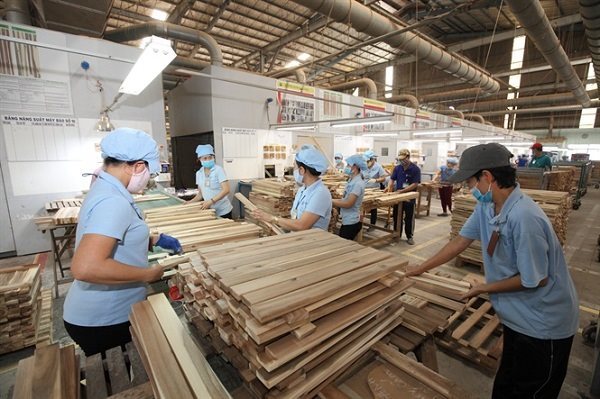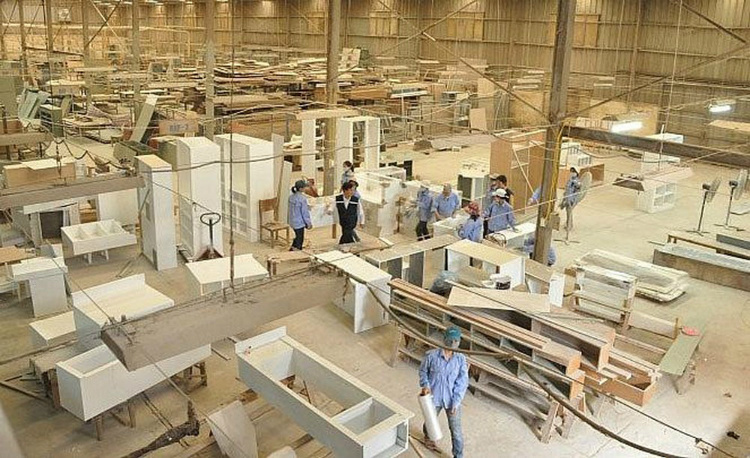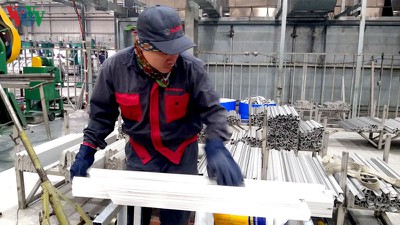- © Copyright of Vietnamnet Global.
- Tel: 024 3772 7988 Fax: (024) 37722734
- Email: [email protected]
supply chain
Update news supply chain
American corporations relocate to Vietnam as costs rise in other locations
Vietnam has recently received many large global groups, led by US technology firms, that have brought production chains with capital of up to billions of dollars.
Vietnam – Rising star in Asia’s shifting supply chains: EIU
A key strength in Vietnam’s business environment is the country’s proliferating membership of free-trade agreements.
Stable outlook expected for Vietnamese dong
While Vietnam is at risk of being listed as currency manipulator by the US, such a risk appears low, as the US will likely continue to reduce its dependence on Chinese exports by reorganizing its supply chain with other partners.
US manufacturing chains choose Vietnam, billions of dollars coming
Among the countries running a race to attract foreign direct investment (FDI), Vietnam is a destination with promised great potential.
How to attract high-quality foreign direct investment
Industrialization requires high-quality foreign direct investment (FDI). Many issues must be addressed, including how to developed a skilled workforce.
Essential guidance beefing up domestic supporting industries
While highly appreciating the solutions and policies set forth in the government’s Resolution No.115/NQ-CP on the development of supporting industries, Truong Thi Chi Binh,
Capital flow redirection still uncertain: economists
 Foreign investors are considering relocating their production bases out of China, but this doesn’t mean that all of them will flock to Vietnam.
Foreign investors are considering relocating their production bases out of China, but this doesn’t mean that all of them will flock to Vietnam.
New strategy needed for coming FDI wave
 There is a new FDI capital flow heading for Southeast Asian countries, but analysts say it is not easy for Vietnam to grab the opportunities.
There is a new FDI capital flow heading for Southeast Asian countries, but analysts say it is not easy for Vietnam to grab the opportunities.
Vietnam welcomes US firms amid global supply chain shifts: Ambassador
 Vietnam hopes US firms with potential in technology, professionalism, and capital will continue to select the country as an attractive and safe destination for relocating business and supply chains,
Vietnam hopes US firms with potential in technology, professionalism, and capital will continue to select the country as an attractive and safe destination for relocating business and supply chains,
Wooden furniture manufacturers face liquidity problems amid COVID-19 crisis
 Vietnam’s wooden furniture industry was expected to have a prosperous year in 2020 after the US-China trade war broke out in 2019. But hopes have been dashed by Covid-19.
Vietnam’s wooden furniture industry was expected to have a prosperous year in 2020 after the US-China trade war broke out in 2019. But hopes have been dashed by Covid-19.
Vietnamese consumers among the most optimistic in Asia during COVID-19
 Vietnamese consumers are some of the most optimistic in Asia during the COVID-19 pandemic, according to American management consulting firm McKinsey’s recent consumer survey.
Vietnamese consumers are some of the most optimistic in Asia during the COVID-19 pandemic, according to American management consulting firm McKinsey’s recent consumer survey.
Vietnamese drugmakers tackling disrupted supply chain
 While gaining advantage in the first quarter of 2020 amid the coronavirus outbreak, Vietnamese drug giants are predicted to face challenges in the upcoming months due to faults in the global ingredient supply chain.
While gaining advantage in the first quarter of 2020 amid the coronavirus outbreak, Vietnamese drug giants are predicted to face challenges in the upcoming months due to faults in the global ingredient supply chain.
Vietnamese woodwork industry: the path to $20 billion goal
 More and more foreign invested enterprises (FIEs) in Vietnam have begun exporting woodwork products as Vietnamese enterprises increasingly lose market share.
More and more foreign invested enterprises (FIEs) in Vietnam have begun exporting woodwork products as Vietnamese enterprises increasingly lose market share.
Evolving demand and supply chain norms
 In early February, in the minds of most of us, COVID-19 was still a China-specific problem. Yet, the strict lockdown imposed early in China generated rapidly unprecedented chaos in global supply chains.
In early February, in the minds of most of us, COVID-19 was still a China-specific problem. Yet, the strict lockdown imposed early in China generated rapidly unprecedented chaos in global supply chains.
Coronavirus: Five ways the outbreak is hitting global food industry
From demand for orange juice to vegetables left unpicked, our usual supply chains have been upended.
VN businesses keen to remove hurdles amid COVID-19 epidemic
 Management agencies have put in place drastic steps in a bid to support businesses as they actively seek out sources of raw materials to be used in production whilst boosting trade promotion activities.
Management agencies have put in place drastic steps in a bid to support businesses as they actively seek out sources of raw materials to be used in production whilst boosting trade promotion activities.
Covid-19 crisis can offer opportunity for Vietnam to expand role in global supply chain
 The difficulties in the global pandemic are opportunities for Vietnam to expand its role in the global supply chain.
The difficulties in the global pandemic are opportunities for Vietnam to expand its role in the global supply chain.
Firms resetting raw material sources
 As the coronavirus outbreak shows no sign of slowing down, supply chain leaders are urged to mitigate instant disruption and plan for their short- and long-term performance.
As the coronavirus outbreak shows no sign of slowing down, supply chain leaders are urged to mitigate instant disruption and plan for their short- and long-term performance.
VN textile-garment thrives with technology
 Adopting advanced technology and improving the localisation ratio of materials and accessories are textile and garment enterprises’ best chance.
Adopting advanced technology and improving the localisation ratio of materials and accessories are textile and garment enterprises’ best chance.
Trading commodities on blockchain
 A fair and efficient supply chain plays an important role in the development of any sector.
A fair and efficient supply chain plays an important role in the development of any sector.

